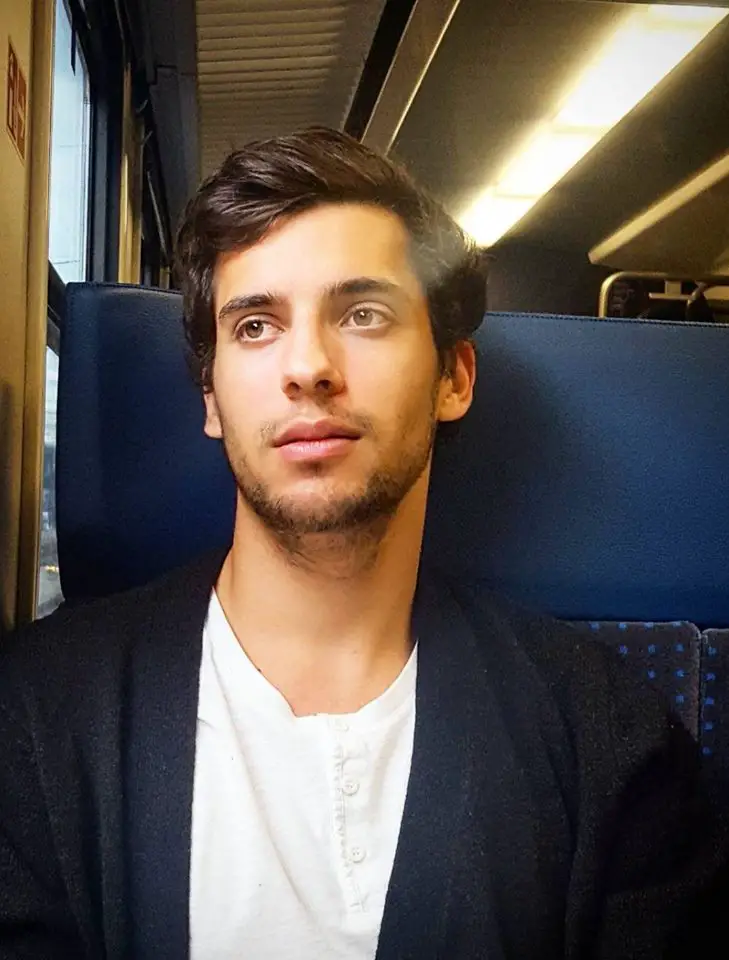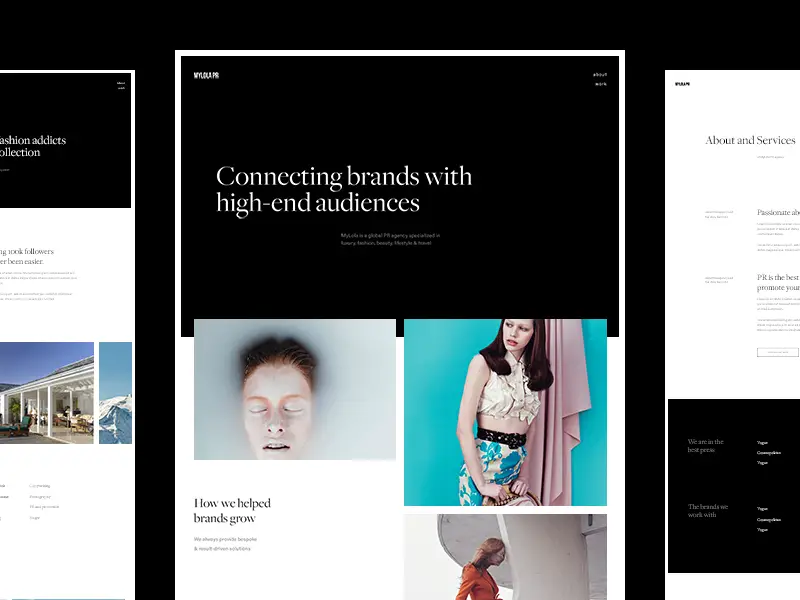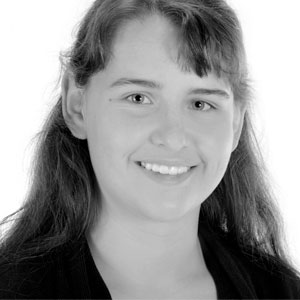Dany Cerone is a college senior at HEIG-VD, a college in Western Switzerland’s University of Applied Sciences, and is preparing to graduate in December. He’s also the founder of a company whose clients have included the International Olympic Committee and the city of Geneva. Any entrepreneur would be thrilled to land such contracts within three years of incorporating his business, but Cerone’s accomplishments are all the more impressive because he started working so early, and because he’s largely self-taught.
A seemingly trivial request introduced Cerone to website design. A relative of his needed an online art portfolio and asked if he knew how to build a suitable website; he didn’t. “I wasn’t into information technology at all,” he says. He Googled the process and found a software program from Apple that allowed people to construct a website without any prior experience. He built the portfolio and assumed he was finished.
However, other people began asking him for help creating websites. Eventually, some of them started paying him, and Cerone realized his hobby could become his profession. It would be a challenge, since he still didn’t know much about coding and development, but Cerone started seriously working to expand website building into a full-time business.
The user experience industry, where Cerone eventually settled, is a subfield of design, which tries to improve consumers’ reactions to a product. When most people hear “design,” they think of graphic design, but that’s not a major part of a user experience designer’s work. “User experience design goes much deeper than graphic design,” Cerone explains. “It’s more about behavior. We talk about user journeys more than visual layout.” A user experience designer’s job is considering who the target audience for a website or piece of media is, and what the audience needs in order to understand the client’s message. “You have to ask yourself ‘Who are we trying to help? What are they trying to do?’”
At an internship with Superhuit, a user experience agency in Lausanne, Switzerland, Cerone learned that even major design companies work in small teams to complete their projects. This meant that he only needed two or three people working with him to start handling big projects. So he hired a friend to help with his fledgling business and the two “leveled up.”
“It sounds insane how I was doing things,” Cerone recalls. “We just said yes to anything. We even went cold-calling and knocking on doors.” At times, their always-say-yes approach got them projects they shouldn’t have tackled, and Cerone remembers a few episodes as “disasters.” Often, the partners had to learn things the hard way because their work was also their on-the-job training.
Cerone planned to go to the University of St. Gallen, a prestigious Swiss business school, but a few weeks after enrolling he dropped out because the material wasn’t relevant to his work and its business advice seemed outdated compared to the lessons he’d learned by experience. Eventually, Cerone would go back to school at HEIG-VD.
In the meantime, though, Cerone’s business (officially incorporated as Heed in 2014) began gaining recognition. Heed’s work for the Olympic Committee is confidential, unfortunately, but its work for the city of Geneva isn’t. Geneva’s city government wanted to educate the public about the kinds of jobs it offered, so Heed produced several videos highlighting the openings and designed an accompanying app for use in local schools. Despite the prestige of those contracts, Heed’s calling cards are the elegant websites it designed for J. Hopenstand, a fashion retailer, and Bilan, a business magazine that wanted a special website describing trends in the watch industry.

In 2016, Heed’s work caught the attention of FWA, an international organization recognizing exceptional digital work. An interactive website Heed designed for an art project called The Young Creatives was honored with a Site of the Day award, which is a major accomplishment because FWA’s awards often go to the likes of Google’s creative lab.
As Heed’s reputation grew, Cerone began thinking about assisting other young entrepreneurs or would-be entrepreneurs. He believes there’s “a gap” between the business advice given by colleges or how-to books and the way business actually works, so he started making videos that offered business advice based on his own experience.
As he spent more time coaching, Cerone discovered that a major obstacle for entrepreneurs is a mindset he calls “the myth.” It’s the myth of “a single idea that makes a billion dollars,” of the genius who begins in a basement and parlays one brilliant concept into an empire. Cerone realized during a weeklong seminar in Silicon Valley that the myth is especially pervasive in people’s attitudes towards entrepreneurship and start-ups, fueled by media portrayals of companies like Apple. Cerone says it’s unrealistic; that kind of success happens “maybe once in a lifetime,” and it’s rarely the original developers who profit.
But he’s found that the myth is widespread among young, aspiring entrepreneurs. “They’re more obsessed with that dream of waking up one morning with that brilliant idea than they are with doing real work and being valuable to a company,” Cerone says. He quotes Seth Godin, a famous entrepreneur and marketer who said, “It would be great to be picked, to win the random lottery, to have a dream come true. But when we rely on a wish to get where we want to go, we often sacrifice the effort that might make it more likely that we get what we actually need.” Godin’s words sum up Cerone’s attitude. “The best thing you can do is go out and do work,” Cerone insists.
“When I started coaching,” he says, “I wasn’t trying to break the myth for students, I was just trying to teach them how to start a small business with a proven idea, like I did.” But now, much of his online course focuses on encouraging students to unlearn ideas that come from the myth and that can hurt them professionally. The most common problems Cerone sees are people taking generic advice that may be irrelevant to their specific situation, making their business plan too elaborate or thinking that business is all about numbers or “old people wearing suits.”
To combat these ideas, Cerone encourages his audience to think small. They shouldn’t aim immediately at creating a major corporation, because “the worst thing you can do to yourself is start on a (goal) that’s too complicated.” He advises creating a plan with clear checkpoints so his students can know if they’re meeting their target. To keep from thinking about business only in terms of numbers, though, Cerone suggests looking at business as a way of helping people. He’s found that mindset proves more motivating and makes business seem more natural.
Although Cerone doesn’t say so explicitly, he’s encouraging his students to conduct business virtuously, in a way that demonstrates good character. Be humble, don’t get caught up chasing a rainbow, see business as serving others. Above all, don’t be afraid of starting small and building your business up from there. “It’s much more inspiring and exciting, but also riskier, too,” Cerone acknowledges.
In the future, Cerone is considering hiring more freelancers at Heed. He recently compiled his earlier videos into six segments that he’ll distribute to subscribers via email before launching another session of his online course. He also plans to continue working full-time at Heed. Ultimately, though, Cerone believes life shouldn’t be centered around one’s job. He tells his students, “Your priority should be having a good life. If you just remember that a good life is about having a good day, you’ll be fine.”
If you’re interested in watching Cerone’s video series on entrepreneurship, you can sign up here.

















